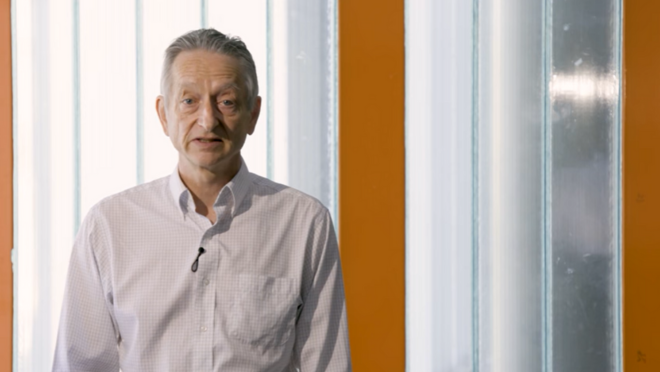'Be a plumber': Godfather of AI reveals the jobs that AI won’t replace anytime soon
'Be a plumber': Godfather of AI reveals the jobs that AI won’t replace anytime soon

A Nobel Prize-winning AI expert claims plumbing is a secure profession amidst rising AI job displacement.
The Godfather of AI has said that a simple job, such as a plumber, is among the safest in a future dominated by artificial intelligence. A Nobel Prize winner who earned his nickname for his work on neural networks, Geoffrey Hinton has revealed the risks of mass joblessness in the future, as technology will “get to be better than us at everything.”
During an interview on the ‘Diary of a CEO’ podcast, he said that the takeover will happen eventually, but there are still jobs that are safer than others for now. “I’d say it’s going to be a long time before it’s as good at physical manipulation. So a good bet would be to be a plumber,” he said, according to a report by Business Insider.
Hinton stated that “intellectual” labour would be the worst hit as AI would easily take over those jobs. “For mundane intellectual labour, AI is just going to replace everybody,” he said.
So, which jobs will be the worst hit? Hinton says paralegals are at risk and said call centre workers should be “terrified”
The only way out, he claims, is to be highly skilled. While some sectors like healthcare may weather the changes due to nearly limitless demand, Hinton believes most industries won’t be as fortunate. “Most jobs, I think, are not like that,” Hinton said, emphasising that the majority of roles will not be able to withstand the wave of disruption AI brings.
Danger of AI
In Hinton’s view, the most immediate and tangible threat posed by artificial intelligence isn’t rogue superintelligence, it’s mass job displacement.
Even if governments were to implement universal basic income, which Hinton himself supports, he argues that people would still struggle with a lack of meaning and purpose in their lives without employment.
Some optimists argue that these fears are exaggerated and that AI will augment rather than replace human workers. Hinton partially agrees with this perspective: in many cases, AI will indeed assist humans rather than take over entirely. But he also cautions that such collaboration can be deceptively efficient.


